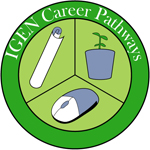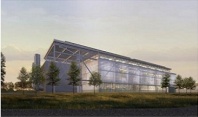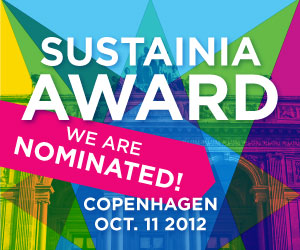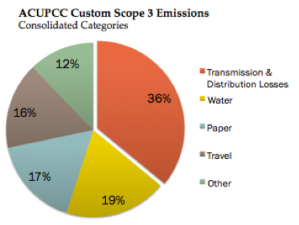At United Tribes Technical College Recycling Program Supports Sustainability
By Dennis J. Neumann, Public Information Director, United Tribes Technical College
(This article appears in the February, 2013 issue of The ACUPCC Implementer and was originally published in the December/January 2013 edition of United Tribes News)
 United Tribes Technical College used National Sustainability Day, October 24, to raise awareness and boost participation in the college’s recycling program. For a number of years campus departments have recycled paper and plastic under the leadership of a small but committed group of faculty members. Two years ago, interest in sustainability grew when United Tribes President David M. Gipp signed theAmerican College and University Presidents’ Climate Commitment (ACUPCC). The document outlines concerns about global climate change and offers methods for higher education institutions to model ways of minimizing the effects, showing leadership and integrating sustainability on campuses around the country. Institutions that sign-on commit their best efforts to pursue climate neutrality: By developing an institutional plan; initiating action to reduce greenhouse gases; and publicly reporting progress reports to the ACUPCC Reporting System.
United Tribes Technical College used National Sustainability Day, October 24, to raise awareness and boost participation in the college’s recycling program. For a number of years campus departments have recycled paper and plastic under the leadership of a small but committed group of faculty members. Two years ago, interest in sustainability grew when United Tribes President David M. Gipp signed theAmerican College and University Presidents’ Climate Commitment (ACUPCC). The document outlines concerns about global climate change and offers methods for higher education institutions to model ways of minimizing the effects, showing leadership and integrating sustainability on campuses around the country. Institutions that sign-on commit their best efforts to pursue climate neutrality: By developing an institutional plan; initiating action to reduce greenhouse gases; and publicly reporting progress reports to the ACUPCC Reporting System.
Green Committee
- Read more about At United Tribes Technical College Recycling Program Supports Sustainability

 Bowie State University has undertaken several endeavors to go “green” and increase its sustainability through its
Bowie State University has undertaken several endeavors to go “green” and increase its sustainability through its  My name is
My name is 







